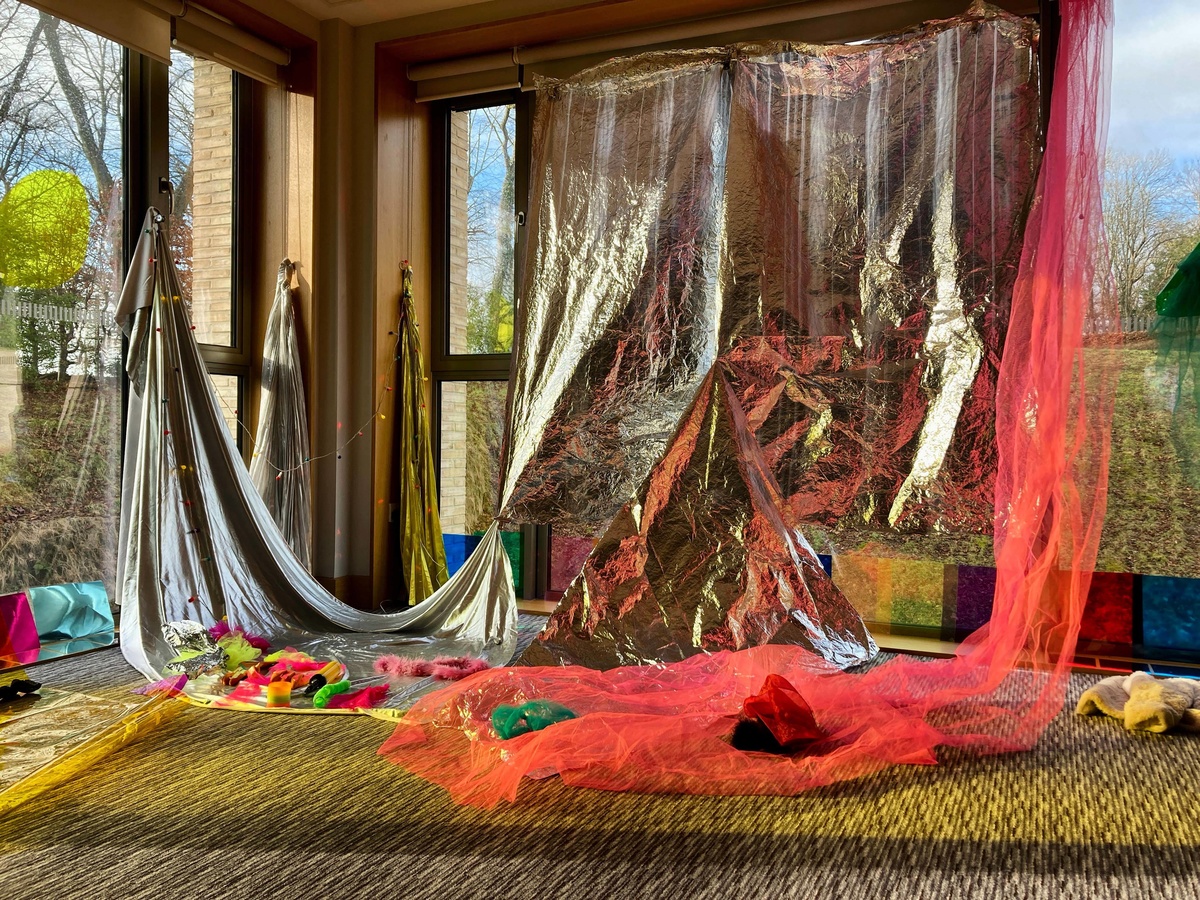relational autonomy runs through our practice
It's been a while since we last posted, but we've quietly been working away, thinking and practicing around our research with Autonomy of Practice.
In 2024 we delivered 245 x individual sensory sessions to young adults who have complex neurological conditions. And alongside our fabulous colleague, Sharon Goodlet we also delivered 348 x individual tailored visual art sessions to young adults who have neuromuscular conditions. These sessions included: drawing and painting, animation, video editing, sound recording and book design.
A lot of this work has been developing in collaboration with many of the young people we work with as part of the art team at The Prince & Princess of Wales Hospice (PPWH).
Many of these young adults are transitioning from paediatric palliative care services into adult services, a significant transition fraught with changes to care and support for these young people and their families.
Along the way we have partnered with and learned from Alison Stirling, Creative Director, Artlink Edinburgh & Lothians; Dr Rachel Clive / For Freedom Space With Rivers for the Being Human Festival of Humanities, University of Glasgow; REMAP charity and Sonic Bothy inclusive music ensemble.
We have also been invited to contribute a case study for a chapter on arts and palliative care in a book edited by Dr Kim Wiltshire “Embedding the Arts into Healthcare” to be published by Intellect later this year.
Back in 2023 we were invited to participate in a workshop Spaces for Birth & Death at University College London, alongside academics from the fields of architecture, interior design, nursing and midwifery, and philosophy. And we have both spent some time working with the breath and voice with Nadine George of Voice Studio International.
Throughout all of this research and practice our work with young adults in particular has been our guide and our touch point. We have re-evaluated so much of how we practice by thinking about the environments we create and through the sensory modalities we are working with. And importantly, the invitations we extend to the people we creatively support, as individuals ourselves and in relation to others.
We have experienced the importance of having an embodied understanding of practice, intersecting with different experiences and perspectives, which is fundamentally about how we connect with each other and our environment.
Over this period of time and through reflecting on our practice, we have learned to foreground accessibility and we are finding liberation within structure. We are thinking about consent and how to ensure this when a person communicates without using spoken language. Reflecting on how can we support people to have creative autonomy over their experience and how can we stimulate curiosity and engage the imagination? How can we as creative practitioners remain authentic and connected when working with so much ambiguity and what cannot be known. This creative decentering process is humbling and rich with creative potential as we adapt, experiment and play - always guided by the person we are creatively supporting .
All of this work is ongoing and at PPWH we are very excited to be working with Dr Lisa McCann, Reader in Computer and Information Science at University of Strathclyde to explore potential areas for future research. We strongly believe our work with young adults in a palliative care setting has wider impact and relevance for other areas of disability care and creative health.
